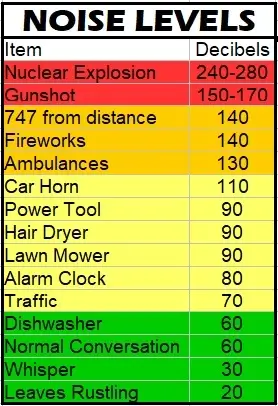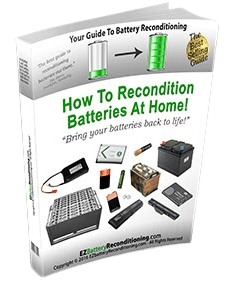A lot of us like the idea of using a generator but wonder about How to Cope with Generator Noise. I take a deep dive and answer the question. Is it really as bad as all that?
There are many generators on the market that range in size, noise level and price. You may find that a portable generator is more than sufficient to power your needs while camping or tailgating. Or it can be a useful option to power your home in the event of a power outage.
But many people have told me that they are worried about the noise a generator makes. In this article, I will give some tips on how to cope with the noise of a generator.
Table of Contents
How to cope with Generator Noise
The thought of going camping with a noisy generator can be quite daunting. And for first-time users, it can make them question their whole trip.
But it doesn’t have to be a problem.
Generator technology has come a long way in recent years, and the newer models are much quieter than their older counterparts. In the last 20 years, the noise made by the average generator has dropped significantly. This is because boffins have worked out how to make the engines run more smoothly, and how to make the exhaust quieter.
Nowadays, the noise of a generator is no louder than appliances that you might have running in your house. So, if you can live with a washing machine or dishwasher running in the background, then you can live with a generator.
However, even the quietest generators will still make some noise. But there are things you can do to mitigate the effects of this noise.
Here are a few ideas.
Purchase a generator that is the right size for your needs.
The first thing you need to do is to make sure you purchase a generator that is the right size for your needs. If you only need to power a few small appliances, then you don’t need to buy a 3,000-watt generator. A 1,000-watt generator will be more than sufficient, and it will be a lot cheaper and quieter.
You only require a larger generator if
- you need to run multiple large appliances at the same time,
- you need to run them for long periods of time, or
- you live or camp in an area with long and cold winters where you need to run the heater for extended periods.
Run the generator during the day
This may seem like an obvious one, but it is worth mentioning. If you run the generator during the day, then the noise will be less of a problem because there will be other noises around to mask it. At night, the noise of the generator will be more pronounced, so it is best to avoid running it during the night if possible.
If your RV and appliances have chargeable batteries, then you can charge them during the day and use them at night. This will mean that you only need to run the generator for a couple of hours each day, rather than all day and all night.
Use sound-dampening materials
If you are going to be running the generator for long periods of time, then it might be worth trying to dampen the noise. This can be done by placing the generator on a sound-dampening mat, or by enclosing it in a sound-dampening box. This will not completely eliminate the noise, but it will reduce it to a more manageable level.
Place the generator as far away from your campsite as possible
If you have the option, then it is best to place the generator as far away from your campsite as possible. The further away the generator is, the less noise you will hear. If you have a long extension lead, then you can place the generator a long way from your campsite without any problem. Just make sure that the lead is rated for the power that you will be using.
On a packed campsite, however, this is not always possible. If you have to have the generator close to your tent, then try and position it so that the exhaust is pointing away from the opening to your tent or RV.
Ask your campsite if they have a quiet generator policy. Some campsites have a ‘quiet generator’ policy. This means that they only allow generators to be used at certain times of the day, or that they only allow certain types of generators
Put the generator on a soft surface
If you position your generator on a soft surface, like grass or soil it will dampen the vibrations. A generator running on a hard surface like concrete or tarmac will naturally be louder than one on a soft surface.
But it is important to remember that modern generators are pretty quiet. The most you will need to endure with an average genny is a low background hum. This will be less intrusive than living next to a busy road. And a lot of folks live alongside busy roads. Chances are that you will be happy to put up with this low level of noise for the sake of having electricity on tap. So stop worrying and enjoy your camping trip!
A Guide to Decibels and Generator Noise
Because generators can be noisy things, I decided to make a comparison table of the decibel (db) ratings for a few common sounds. This will help you understand how loud a particular generator may be in relation to other common noises.
There are a few things to bear in mind about decibels as a unit of measurement.

First, the dB scale is logarithmic, not linear. This means that an increase of 10 dB does not represent a doubling of loudness, but rather a ten-fold increase. So, a noise that is 50 dB is actually ten times louder than one that is 40 dB. Accordingly, a sound at 100 decibels is 100,000 times louder than one at 50 decibels.
Second, the dB scale is relative. What this means is that the dB rating of a particular noise will vary depending on your distance from the source of the noise. So it is possible for a noise to be rated at 50 dB at one distance, but only 40 dB at a different distance. This means that it is important to know how far away you will be from the generator when trying to determine how loud it will be.
With that said, here is a chart comparing the decibel ratings of some common household appliances. I have also added a broader chart to illustrate comparisons between household appliances and louder events. After all, who DOESN’T want to know how loud a nuclear blast is?
Appliance Decibels (dB) Comparison
| Noise | Decibels dB |
|---|---|
| Thunder | 120 |
| Gas-Powered Lawn Mowers | 95 |
| Food Processor | 93-100 |
| 1/4inch drill | 92-95 |
| Air Compressor | 90-93 |
| Vacuum cleaner | 84-89 |
| Hair Dryer | 80-95 |
| Generator – large 10000W | 80-90 |
| Motorcycle <35mph | 78 |
| Average Family Car <35mph | 72 |
| Medium Traffic (dist 15 meters) | 70 to 80 |
| Generator – Medium 4000W | 70-80 |
| Lawn mover | 75 |
| TV MAX | 70 |
| Ceiling fan | 65-70 |
| Fan | 60-66 |
| Dish Washer | 63-66 |
| Washing Machine | 50 |
| Clothes Dryer | 56-58 |
| Quiet Dehumidifier | 53-57 |
| Generator – Small 2000W | 50-55 |
| Fridge | 50 |
Like How to Cope with Generator Noise? Check out our related articles!


